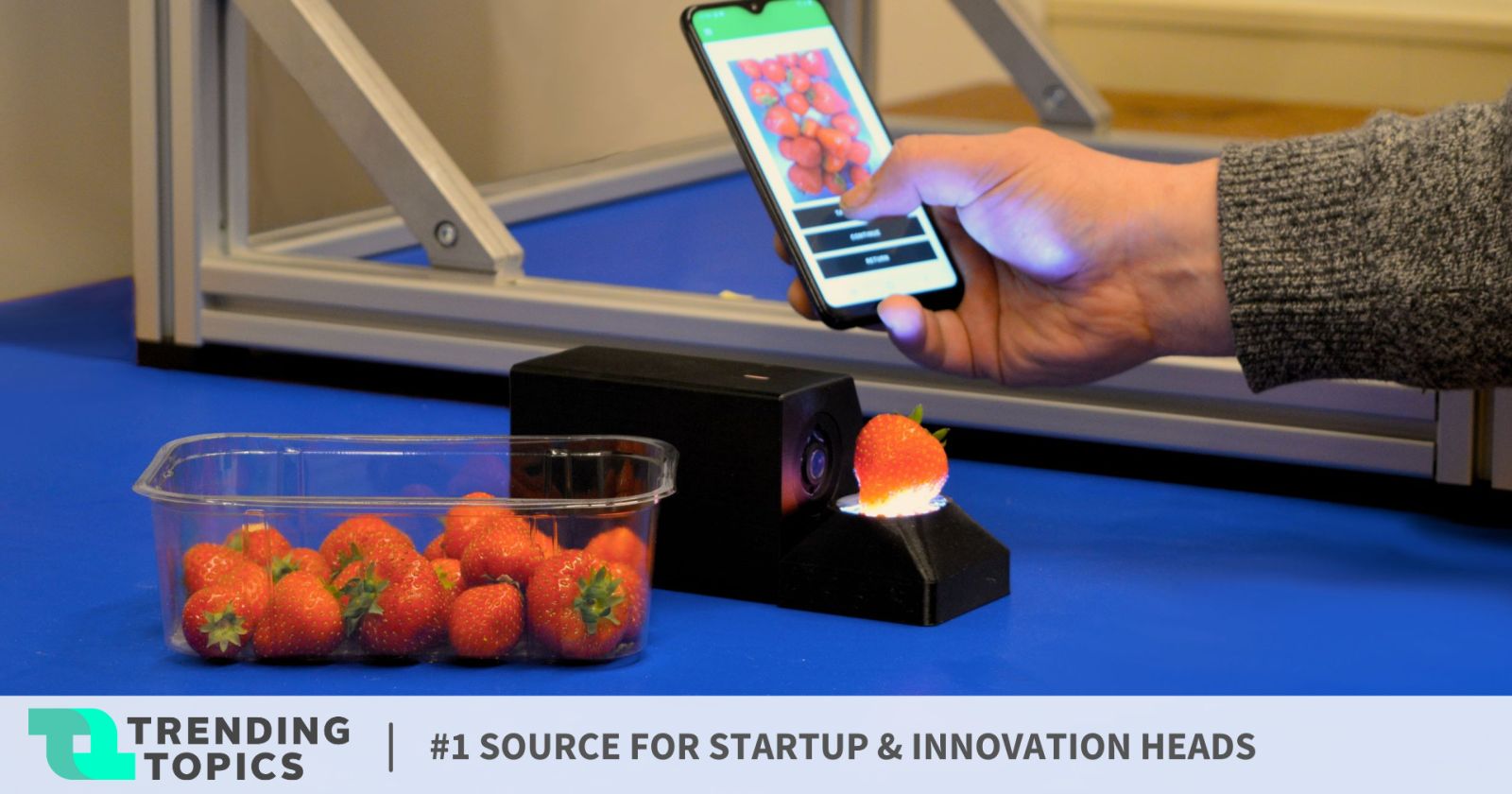Ever bought raspberries in the morning and by the evening they were full of mold? That’s just the tip of a giant iceberg of food waste that costs $1 trillion a year. Because up to a third of the food brought onto the market every year is thrown away, 40 percent of which is fruit and vegetables. The reason for this is, of course, that fruit and vegetables can spoil within a few days, but they are often transported over long distances. The result is that they just barely pass in the shop and then go bad very quickly at home with end consumers.
The Dutch startup OneThird claims to have found a way to counteract this. Using near-infrared scanning technology, it aims to enable producers, wholesalers, retailers and consumers to predict the shelf life of fruit and vegetables. This currently works for tomatoes, strawberries, blueberries and avocados with a forecast accuracy of one day. On the one hand, the scanning technology is to be used by food producers, who can determine more precisely how long the goods will last and where they can still be delivered. On the other hand, customers in shops could use the devices to check the goods themselves before buying them.
Day against food waste: What startups & their users are doing
Eliminate 25 percent of waste
It is still open whether this can be implemented. In any case, investors are now pumping fresh 2.75 million euros into the startup from Enschede. The funding round is being led by Netherlands-based impact investor Pymwymic (“Put Your Money Where Your Meaning Is Community”), with participation from existing investors Halma Ventures Limited, SHIFT Invest and Oost NL. One of the plans with the money is to expand the technology to a total of ten types of fruit and vegetables by the end of 2023, including grapes, bananas, mangoes and raspberries. If you scanned the food regularly, you could avoid an average of 25 percent of the waste.
One result of using the technology in retail could be that best-before dates become more precise or routing to closer destinations so that goods arrive fresh can be optimized. You could also find out sooner that raspberries, blueberries and the like will spoil soon and then process them in time to make smoothies, frozen products or soups. “A third of the food produced worldwide each year is wasted. That’s an astronomical amount considering how many people around the world go to bed hungry. Global food waste is not only inefficient, it is also a major social justice issue that cuts across multiple links in the supply chain – from farm production to landfill,” said Marco Snikkers, CEO and Founder of OneThird.
Solutions like those from OneThird are also interesting for large retail chains. In any case, they are open to the topic. Spar, for example, has developed a solution with its own IT department, Microsoft and other partners to enable targeted order suggestions and forecasts with the help of data and AI. In this way, the supply chain should become correspondingly efficient.
Spar wants to fight food waste with AI
